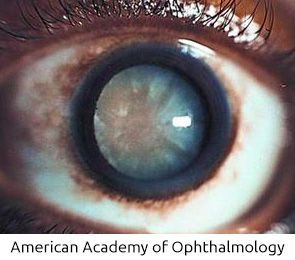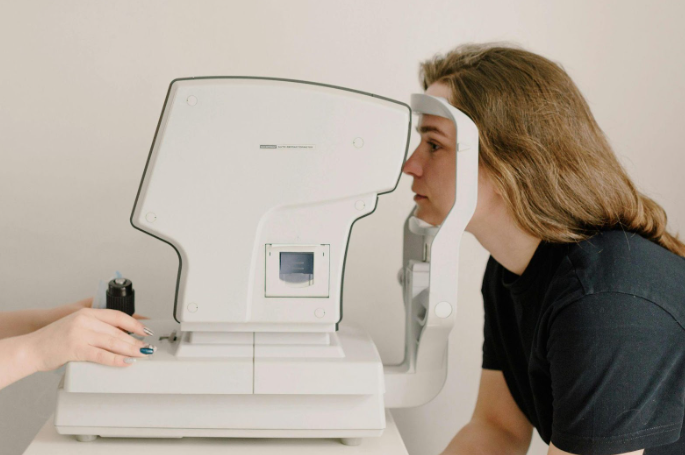If Your Parents Had Cataracts Does That Mean You Will Too?
 If your parents or grandparents had cataracts it’s normal to be concerned that you might develop them too. We often hear from patients who tell us about an older family member that could barely see out of a cloudy whitish-looking eye. They worry this will be their fate as well.
If your parents or grandparents had cataracts it’s normal to be concerned that you might develop them too. We often hear from patients who tell us about an older family member that could barely see out of a cloudy whitish-looking eye. They worry this will be their fate as well.
While genetics do increase your risk of developing cataracts, aging is more likely to be the culprit. According to the American Academy of Ophthalmology, cataracts affect more than 24.4 million Americans over the age of 40, and approximately half of all Americans have cataracts by age 75.
However, even if you develop cataracts—due to genetics, aging, a combination of both, or another medical condition—that doesn’t mean you’re destined for the same near-blinded cloudy-whitish eye scenario your older relative endured. With a basic understanding of cataracts, including the symptoms and what you can do to protect your eyes, you can maintain optimal vision as you age.
Symptoms Of Cataracts
A cataract is a clouding of the eye’s crystalline lens, which is just behind the pupil. This lens should be clear, so that it can effectively work with the cornea to focus light on the retina . If the lens becomes clouded, it’s considered a cataract, regardless of whether it’s causing reduced vision or not.
Cataract disease is progressive and it develops gradually, so you may not notice changes in your vision when cataracts first begin to develop. Over time, you may begin to experience symptoms of cataracts, such as:
- Blurry vision.
- Dimmed vision
- Seeing double, but only in one eye.
- Extra sensitivity to light.
- Difficulty seeing well at night, or needing more light when you read.
- Bright colors appear faded or yellowish, like an old newspaper.
- Seeing halos around lights.
How To Reduce The Risk Of Developing Cataracts
Other than genetics and aging, there are a few conditions that raise your chances of having cataracts. Certain medical conditions, such as diabetes, increase the risk of developing cataracts, so maintaining your overall health as you age will affect your eye health as well.
Previous eye surgeries or injuries can also increase the risk of developing cataracts, so protect your eyes wisely. Likewise, spending too much time in the sun without sunglasses can damage your eye proteins and start the process of cataract formation. Protect your eyes with a wide brimmed hat or sunglasses that are rated for UV (ultraviolet light) protection.
The best way to stay on top of cataracts, however, is to schedule annual comprehensive eye examinations. An ophthalmologist can detect cataracts by examining the front part of the eye, including the lens, with a biomicroscope, and the back part of the eye with an ophthalmoscope.
(Keep in mind that a comprehensive eye exam is not the same thing as a vision screening. A vision screening is basically a visual acuity test that can be performed anywhere glasses are sold, and it does not detect cataracts. Schedule a comprehensive eye exam once a year, especially if you are diabetic and/or over the age of 40, for a thorough evaluation of your eyes.)
Depending on your cataract diagnosis, your ophthalmologist can tell you whether your cataracts are likely to progress slowly or rapidly, and can tell you if you’re a candidate for cataract surgery . Today’s advanced, outpatient cataract surgery procedures lead to improved vision in more than 95% of cases in which cataracts are the only issue.
Treating cataracts is one of our specialties at Baptist Eye Surgeons. With offices in Knoxville, TN and Morristown, TN, Baptist Eye Surgeons is an ophthalmological practice dedicated to providing quality eye care to patients whose needs range from routine comprehensive eye examinations to complex eye surgeries. To learn about our specialities and our doctors, visit our website . Call us at 865-579-3920 for more information, or visit us online to schedule an appointment .





